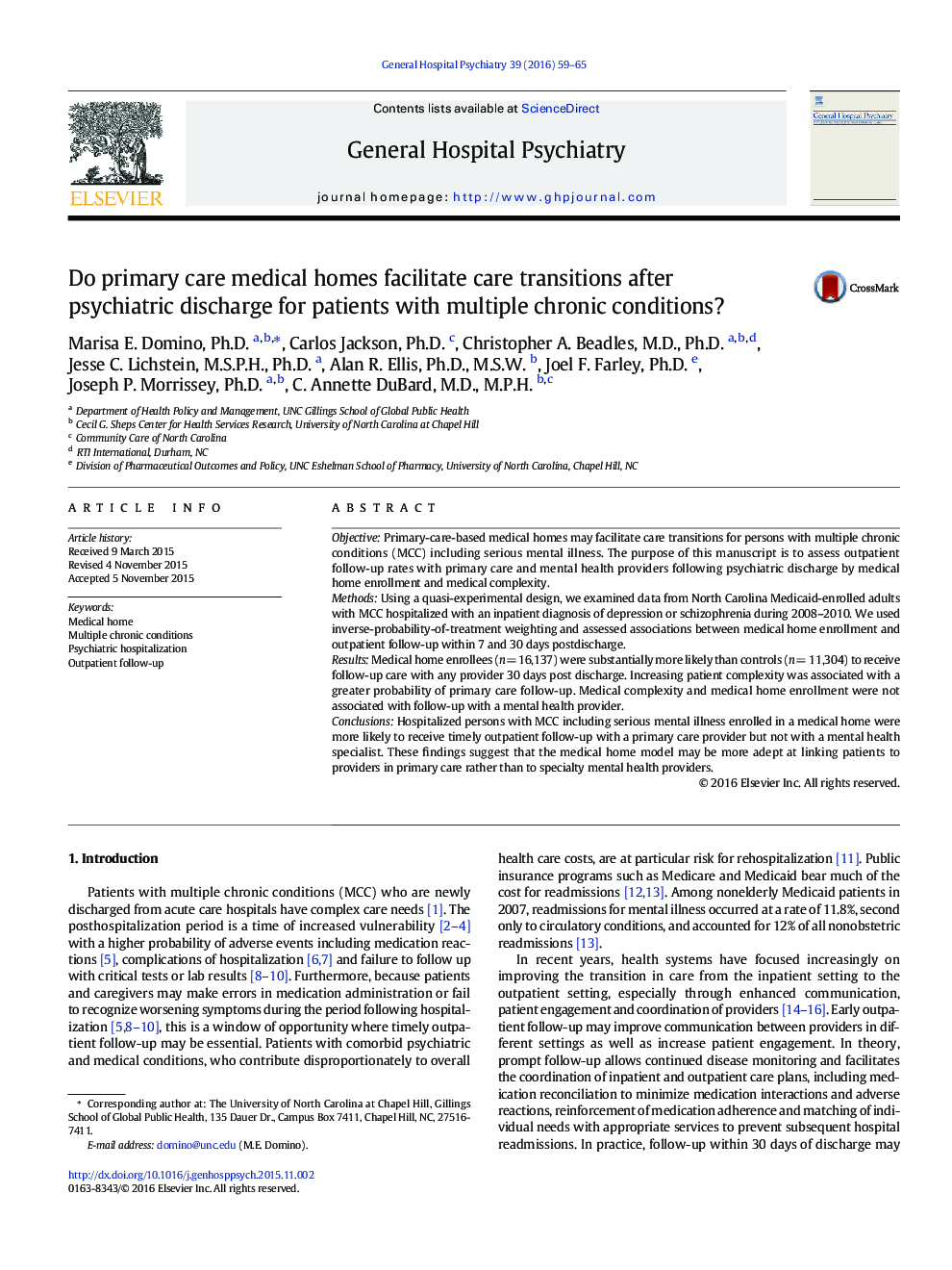| Article ID | Journal | Published Year | Pages | File Type |
|---|---|---|---|---|
| 3237561 | General Hospital Psychiatry | 2016 | 7 Pages |
ObjectivePrimary-care-based medical homes may facilitate care transitions for persons with multiple chronic conditions (MCC) including serious mental illness. The purpose of this manuscript is to assess outpatient follow-up rates with primary care and mental health providers following psychiatric discharge by medical home enrollment and medical complexity.MethodsUsing a quasi-experimental design, we examined data from North Carolina Medicaid-enrolled adults with MCC hospitalized with an inpatient diagnosis of depression or schizophrenia during 2008–2010. We used inverse-probability-of-treatment weighting and assessed associations between medical home enrollment and outpatient follow-up within 7 and 30 days postdischarge.ResultsMedical home enrollees (n= 16,137) were substantially more likely than controls (n= 11,304) to receive follow-up care with any provider 30 days post discharge. Increasing patient complexity was associated with a greater probability of primary care follow-up. Medical complexity and medical home enrollment were not associated with follow-up with a mental health provider.ConclusionsHospitalized persons with MCC including serious mental illness enrolled in a medical home were more likely to receive timely outpatient follow-up with a primary care provider but not with a mental health specialist. These findings suggest that the medical home model may be more adept at linking patients to providers in primary care rather than to specialty mental health providers.
